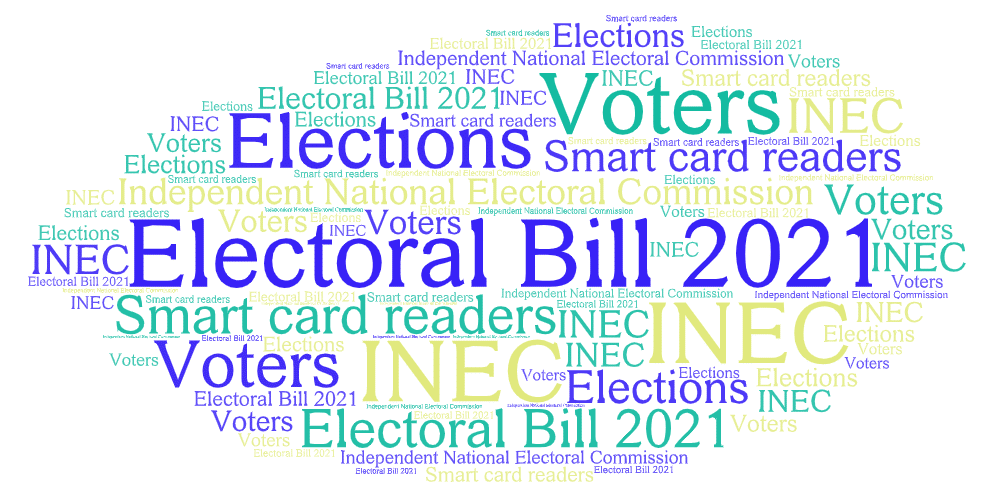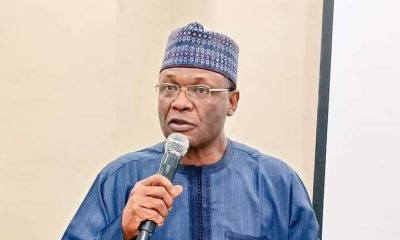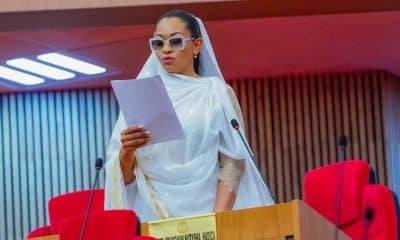Nigeria News
Ten Reasons Why President Buhari Needs To Sign The Electoral Bill 2021

Nigerians are waiting on President Muhammadu Buhari to assent to the Electoral Act Amendment Bill 2021 recently transmitted to him by the National Assembly.
The President, through a letter dated 13 December 2021 read at the Senate by the Senate President on 21 December 2021 communicated his decision to withhold assent to the Electoral Act Amendment Bill 2021, passed by both houses of the National Assembly.
The National Assembly, on 31 January 2022, transmitted the adjusted Electoral Act (Amendment) Bill to President Muhammadu Buhari for assent. Nineteen days after the reworked bill was forwarded to President Buhari he is yet to assent the bill.
The Independent National Electoral Commission (INEC) has warned that if President Muhammadu Buhari does not sign the Electoral Amendment Bill into law by Tuesday, February 22, it would force the commission to postpone the date of the 2023 presidential election.
With three days to the deadline, the hope that President Muhammadu Buhari will assent to the Electoral Act Amendment Bill appears dim.
Here Are The Top 10 Provisions In The Electoral Bill, 2021
1. Early release of election funds to INEC:
The bill strengthens the financial independence of the Independent National Electoral Commission (INEC) by ensuring that all funding required for a general election is released not later than one year before the next general elections. Clause 3(3)
2. Inclusion of persons with disability:
The Commission shall take reasonable steps to ensure that persons with disabilities, special needs and vulnerable persons are assisted at the polling place by the provision of suitable means of communication, such as Braille, Large embossed print or electronic devices or sign language interpretation, or off-site voting in appropriate cases. Clause 54(2)
3. Legalising electronic accreditation of voters:
The bill makes provisions for electronic accreditation of voters using the Smart Card Readers or any technological device as may be determined by INEC.
4. Redefind Over-voting:
According to the bill, over-voting occurs when the number of votes cast at an election in any polling unit exceeds the total number of accredited voters in that polling unit. With this new provision the total number of accredited voters will become a determining factor in the validity of votes in an election. The outdated definition has been exploited by politicians to manipulate electoral outcomes. Clause 51
5. Substitution of the candidate in the event of death in an election:
The new bill addresses a lacuna in the current electoral law 1111 which was manifest in the 2015 Governorship Election in Kogi State where a candidate died before the result of that election was announced. The bill affords political parties the opportunity to conduct primary elections to replace a candidate who dies after the commencement of polls and before the announcement of final results and declaration of a winner.
A timeline of 21 days is provided for INEC to conclude an election and declare a winner. It goes further to prescribe that in the case of legislative elections, the election will start afresh, and a political party affected by the bereavement can conduct a new primary within 14 days to nominate a new candidate. However, in the case of presidential and governorship elections, the running mate of the deceased candidate will continue with the election and nominate a running mate. Clause 34
6. Power To Review Election Results Declared Under Duress
The bill confers INEC with the power to review declarations and returns made under questionable circumstances to keep Returning Officers in check and ensure full compliance with electoral guidelines. The provision will fundamentally transform the results management process and deter politicians from compelling polling officials to declare fabricated election results. Clause 65.
7. Early Conduct Of Party Primaries And Submission Of List Of Candidates
Every political party shall not later than 180 days before the date appointed for a general election, submit the list of candidates the party proposes to sponsor at the election to the Commission, who must have emerged from valid primaries conducted by the political party. Clause 29(1)
8. Early Commencement Of Campaigns:
The period of public campaigns by political parties has been extended from 90 days to 150 days before polling day and end 24 hours prior to that day. Clause 94
9. Political Neutrality Of INEC Personnel Upon Appointment And Penalty For Contravention:
A person who, being a member of a political party, misrepresents himself by not disclosing his membership, affiliation, or connection to any political party in order to secure an appointment with the Commission in any capacity, commits an offence and is liable on conviction, to a fine of ₦5,000,000 or imprisonment for a term not exceeding two years or
10. Electronic Transmission Of Results:
The bill confers INEC with the powers to determine whether election results are transmitted electronically or manually. Clause 50












